Introduction to Advanced Filtration with Oil Filter Paper
In industrial and commercial applications, efficient filtration is paramount for equipment longevity, operational performance, and product quality. At the heart of many critical filtration systems lies oil filter paper, a specialized medium engineered to remove particulate contaminants from various fluid streams. This article delves into the intricate world of advanced filtration, focusing on the technical specifications, application versatility, and strategic importance of this essential material. From lubricating oils in heavy machinery to edible oils in commercial kitchens, the effectiveness of filtration directly impacts efficiency and safety.
The selection and implementation of high-quality filtration media represent a strategic decision for B2B stakeholders, directly influencing maintenance costs, operational downtime, and compliance with industry standards. Understanding the core properties and manufacturing excellence behind modern oil filter paper is crucial for engineers, procurement managers, and technical decision-makers seeking to optimize their filtration processes.
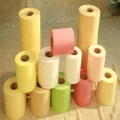
Industry Trends and Market Dynamics
The filtration market is continually evolving, driven by stricter environmental regulations, increasing demand for product purity, and advancements in material science. Key trends impacting the demand for oil filter paper include:
- Environmental Sustainability: A growing emphasis on eco-friendly manufacturing processes and recyclable filter materials. Manufacturers are exploring biodegradable components and optimized designs to reduce waste.
- Enhanced Efficiency and Lifespan: Continuous innovation in media design to achieve higher filtration efficiency (e.g., sub-micron filtration) and extended service life, reducing change-out frequency and operational costs. This is particularly critical for applications involving `diesel filter paper` where fuel purity directly impacts engine performance and emissions.
- Customization for Specific Applications: The demand for tailor-made filter media that can withstand specific chemical compositions, temperatures, and pressures is increasing. This includes specialized `commercial fryer filter paper` designed to extend the life of cooking oils by efficiently removing food particles and residues without affecting oil quality.
- Smart Filtration Systems: Integration of sensors and IoT technologies to monitor filter performance in real-time, predicting maintenance needs and optimizing filter usage.
The global market for filtration media is projected to grow significantly, with a CAGR exceeding 6% over the next five years, driven by industrial expansion and stringent quality control requirements across various sectors.

Manufacturing Process Flow of Oil Filter Paper
The production of high-performance oil filter paper is a multi-stage, technically sophisticated process, ensuring consistent quality and filtration efficacy. The primary `oil filter paper material` typically consists of a blend of cellulose fibers (e.g., wood pulp) and synthetic fibers (e.g., polyester, fiberglass, polypropylene) for enhanced strength, temperature resistance, and specific filtration characteristics. The manufacturing process can be broadly outlined as follows:
Schematic Process Steps:
- Fiber Preparation and Blending: Selected cellulose and synthetic fibers are precisely weighed and blended. This step determines the base pore structure, mechanical strength, and chemical compatibility of the final product. Fibers are dispersed in water to create a slurry.
- Sheet Formation (Wet-laid Process): The fiber slurry is fed onto a continuous mesh screen on a papermaking machine (similar to a Fourdrinier machine). Water is drained, forming a nascent paper web. The uniformity of the web is critical for consistent filtration performance.
- Impregnation: The most crucial step for specialized filter paper. The formed web is impregnated with resin binders (e.g., phenolic resins, acrylic resins). This “casting” process provides wet strength, rigidity, thermal stability, and controls the pore size distribution. The type and amount of resin directly influence the paper’s resistance to oil, chemicals, and temperature, as well as its filtration efficiency.
- Curing and Drying: The impregnated web is passed through drying ovens where the resins are cured, locking the fibers into a stable, porous matrix. Precise temperature and dwell time control are essential to prevent material degradation and ensure optimal physical properties.
- Calendering (Optional): For specific grades, the paper may be calendered to achieve desired thickness and surface smoothness, influencing permeability and dirt-holding capacity.
- Slitting and Packaging: The finished `oil filter paper material` rolls are slit into specified widths and packaged for delivery to filter manufacturers.
- Quality Control & Testing: Throughout the process, strict quality control measures are applied. Testing standards include ISO 16889 for multi-pass performance testing, ISO 2942 for fabrication integrity, and specific ANSI standards for material strength and chemical resistance. Parameters like air permeability (ISO 5636), wet tensile strength (ISO 3781), thickness, basis weight (ISO 536), and micron rating are rigorously monitored.
The service life of oil filter paper is contingent upon the fluid’s contamination level, flow rate, temperature, and pressure. Properly selected and manufactured `oil filter paper` can significantly extend the lifespan of machinery components and ensure product purity in target industries such as petrochemical, metallurgy, automotive, and food processing.
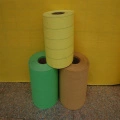
Technical Specifications and Performance Parameters
Understanding the technical specifications of oil filter paper is essential for selecting the correct media for a given application. Key parameters include:
- Micron Rating: The nominal or absolute particle size that the filter paper can effectively capture. Ranges from sub-micron to tens of microns.
- Permeability (Air Permeability): A measure of how easily air (or fluid) can pass through the paper, indicating resistance to flow. Measured in L/m²/s or cfm.
- Wet Burst Strength: The pressure the saturated paper can withstand before bursting, crucial for high-pressure applications.
- Basis Weight: Mass per unit area (g/m²), influencing material density and dirt-holding capacity.
- Thickness: Affects filtration depth and differential pressure.
- Dirt Holding Capacity (DHC): The amount of contaminant a filter can retain before reaching a terminal pressure drop.
- Temperature Resistance: The maximum operating temperature the paper can withstand without degrading.
- Chemical Compatibility: Resistance to various oils, additives, and other chemicals present in the fluid stream.
Typical Product Specifications for Industrial Oil Filter Paper
| Parameter | Unit | Value Range | Test Standard |
|---|---|---|---|
| Basis Weight | g/m² | 80 – 250 | ISO 536 |
| Thickness | mm | 0.2 – 0.8 | ISO 534 |
| Air Permeability | L/m²/s @ 200Pa | 100 – 1500 | ISO 5636-5 |
| Wet Tensile Strength (MD) | N/15mm | > 30 | ISO 3781 |
| Pore Size Distribution | Microns | 1 – 50 (Customizable) | ASTM E1294 |
| Operating Temperature Range | °C | -40 to +130 | Manufacturer’s Spec |
These parameters are meticulously engineered to provide superior filtration performance, resulting in advantages such as energy saving through reduced pump load and enhanced corrosion resistance by removing abrasive particulates.
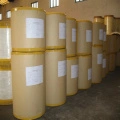
Application Scenarios and Technical Advantages
The versatility of oil filter paper allows its deployment across a broad spectrum of industrial and commercial applications, each leveraging its unique technical advantages.
Key Application Areas:
- Automotive & Diesel Engines: As `diesel filter paper`, it’s critical for purifying engine oils and fuel, protecting sensitive components like fuel injectors and pumps from abrasive particles. This extends engine life and maintains fuel efficiency, preventing costly repairs.
- Industrial Lubrication Systems: Used in hydraulics, gearboxes, and industrial machinery to maintain the purity of lubricating oils. This prevents wear on moving parts, reducing friction and energy consumption, leading to significant energy saving.
- Petrochemical Industry: Filtration of process oils, coolants, and various chemical streams. The chemical compatibility and high-temperature resistance of specialized `oil filter paper material` are crucial here.
- Food & Beverage Processing: `Commercial fryer filter paper` is extensively used in restaurants and food production facilities to filter cooking oils. This removes food debris, extends the usable life of expensive frying oils, improves the taste and appearance of fried products, and offers substantial cost savings. Its non-toxic, food-grade properties are paramount.
- Metalworking: Filtration of cutting fluids, grinding oils, and coolants to remove metal swarf and abrasive particles, improving surface finish and tool life.
- Water Supply & Drainage (Specialized): While less common for general water filtration, certain hydrophobic or oleophilic filter papers can be used in oil-water separation processes or for polishing industrial wastewater streams where oil contamination is a concern.
Technical Advantages:
- High Filtration Efficiency: Designed with controlled pore sizes to capture a broad range of particulates, from coarse debris to fine colloidal suspensions, ensuring exceptional fluid clarity.
- Superior Dirt Holding Capacity: Engineered media structures provide deep bed filtration, allowing filters to hold significant amounts of contaminant without rapid pressure buildup, thus extending service intervals.
- Enhanced Wet Strength and Integrity: Resin impregnation ensures the paper maintains structural integrity even when saturated with oil or other liquids, preventing fiber migration and filter bypass.
- Chemical and Thermal Resistance: Specialized `oil filter paper material` can withstand aggressive chemicals and high operating temperatures common in industrial environments, ensuring reliable performance.
- Cost-Effectiveness: By protecting machinery and extending the life of process fluids (e.g., cooking oil, lubricants), high-quality filtration paper reduces operational expenses, maintenance costs, and capital expenditures on new equipment.
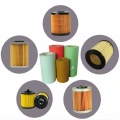
Vendor Comparison and Customization Options
When sourcing oil filter paper, selecting the right `oil filter paper suppliers` is critical. While specific vendor names are not discussed here, comparing suppliers based on key criteria ensures optimal procurement and long-term satisfaction.
Key Vendor Comparison Criteria:
| Criterion | Importance | Description for Comparison |
|---|---|---|
| Product Quality & Consistency | High | Certifications (ISO 9001, IATF 16949), adherence to specific industry standards (e.g., FDA for food-grade paper), batch-to-batch consistency. |
| Technical Support & Expertise | High | Ability to provide detailed technical data, application engineering support, and troubleshoot filtration challenges. |
| Customization Capabilities | Medium-High | Flexibility in adjusting parameters like micron rating, thickness, wet strength, and chemical resistance for unique applications. |
| Lead Time & Logistics | Medium | Reliable delivery schedules, global shipping capabilities, and efficient supply chain management. |
| Cost-Effectiveness & Value | High | Competitive pricing combined with superior performance, leading to lower total cost of ownership (TCO) through extended filter life and reduced equipment wear. |
Customized Solutions:
Leading `oil filter paper suppliers` often provide extensive customization services to meet precise customer requirements. This might include:
- Tailored Fiber Blends: Adjusting ratios of cellulose, synthetic, and specialty fibers to optimize for specific mechanical strength, temperature resistance, or chemical compatibility.
- Resin Impregnation Optimization: Modifying resin type and concentration to achieve desired wet strength, rigidity, and filtration efficiency, crucial for applications from `commercial fryer filter paper` to `diesel filter paper`.
- Precision Micron Ratings: Developing filter paper with a specific mean pore size and pore size distribution for challenging applications requiring ultra-fine filtration or rapid flow rates.
- Surface Treatments: Applying hydrophobic or oleophilic coatings for specialized separation tasks.
- Dimensional Customization: Supplying paper in specific roll widths, lengths, or pre-cut sheets to integrate seamlessly into existing filter manufacturing lines.

Application Case Studies and Customer Experience
Real-world application demonstrates the tangible benefits of high-quality oil filter paper. Here are illustrative examples:
Case Study 1: Heavy Equipment Lubrication System
A large mining operation faced frequent downtime and component wear in their hydraulic and engine lubrication systems due to inadequate filtration of high-viscosity oils in extreme conditions. Implementing a custom-designed `diesel filter paper` with enhanced multi-pass efficiency (Beta ratio βₓ>1000 at 5 microns) and superior wet burst strength led to significant improvements. Component lifespan for hydraulic pumps increased by 40%, and engine oil change intervals were extended by 25%. The operator reported a 15% reduction in annual maintenance costs directly attributable to improved oil cleanliness.
Case Study 2: Commercial Frying Operation
A major fast-food chain sought to improve the quality of their fried products and reduce cooking oil expenditures. By switching to a specially formulated `commercial fryer filter paper` that adhered to strict food-grade standards (e.g., FDA 21 CFR 176.170), they achieved remarkable results. The filter paper, featuring optimized pore structure for efficient removal of food particles and carbonized residues, extended the useful life of cooking oil by an average of 3-5 days per batch. This translated to a 20% reduction in oil purchasing costs and consistently higher product quality, as evidenced by customer feedback on taste and appearance.
Customer Feedback Highlights:
- “The consistency of the oil filter paper we receive is unmatched. Our production line runs smoother, and quality control checks are consistently passed.” – Operations Manager, Automotive OEM supplier.
- “We’ve seen a tangible reduction in hydraulic system failures since upgrading our filter media. The technical team provided excellent support in selecting the right grade.” – Maintenance Engineer, Steel Mill.
- “Our `commercial fryer filter paper` from this supplier is a game-changer. Our oil lasts longer, and our fried products have never been better. It’s a clear return on investment.” – Procurement Head, National Restaurant Chain.
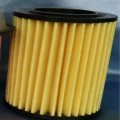
Trustworthiness: FAQ, Lead Time, Warranty & Support
Frequently Asked Questions (FAQ)
-
Q: How do I determine the correct micron rating for my application?
A: The optimal micron rating depends on the required fluid cleanliness level and the sensitivity of the downstream components. Our technical team can assist with fluid analysis and system assessment to recommend the precise oil filter paper grade. -
Q: Can your `oil filter paper material` withstand high temperatures and aggressive chemicals?
A: Yes, we offer specialized grades formulated with advanced synthetic fibers and robust resin binders that provide excellent resistance to high temperatures (up to 130°C) and compatibility with a wide range of industrial chemicals. -
Q: What is the typical lead time for a custom `oil filter paper` order?
A: Standard product lead times are typically 2-4 weeks. Custom orders, depending on complexity and material sourcing, may range from 6-10 weeks. We work closely with clients to meet urgent deadlines wherever possible.
Lead Time & Fulfillment
We maintain strategic inventory levels of our most popular oil filter paper products to ensure rapid dispatch. For customized solutions, our integrated supply chain and efficient manufacturing processes allow for competitive lead times. We utilize robust logistics networks to ensure timely and secure delivery globally, tracking orders from production to destination.
Warranty Commitments
All our oil filter paper products are manufactured under stringent ISO 9001 certified quality management systems and come with a performance warranty against manufacturing defects. Specific warranty periods and conditions are detailed in our product datasheets and sales agreements, reflecting our confidence in product reliability and adherence to stated technical specifications.
Customer Support Information
Our dedicated technical support team comprises experienced filtration engineers ready to assist with product selection, application optimization, and troubleshooting. We offer comprehensive pre-sales consultation, ongoing technical assistance, and responsive after-sales support to ensure continuous operational excellence for our clients. For inquiries, please contact our support desk via phone or email, detailed on our corporate website.

Conclusion
The strategic deployment of high-performance oil filter paper is a cornerstone of modern industrial and commercial operations. Its advanced engineering ensures superior fluid cleanliness, protects vital machinery, extends operational lifecycles, and contributes significantly to both energy efficiency and environmental compliance. As industries continue to demand higher purity standards and more sustainable solutions, the innovation in filter media, particularly in the realm of `oil filter paper material`, will remain a critical factor in driving performance and economic benefits. Partnering with expert `oil filter paper suppliers` offering technical support and customization capabilities is essential for businesses aiming to optimize their filtration strategies and achieve long-term success.
References
- ISO 16889: Hydraulic fluid power – Filters – Multi-pass method for evaluating filtration performance of a filter element.
- ASTM E1294: Standard Test Method for Pore Size Characteristics of Membrane Filters Using Automated Liquid Porosimeter.
- “Filtration and Separation Magazine,” Elsevier Ltd., various issues.
- “Fundamentals of Industrial Filtration,” by Dr. Frank T. Roth, Pall Corporation.
- U.S. Food & Drug Administration, 21 CFR Part 176.170: Components of paper and paperboard in contact with aqueous and fatty foods.
Hebei Fangyu Filter Material Technology Co.,Ltd is the leading innovative developer and manufacturer all kinds of filter materials in China.pocket filter media factory Located in the economically developed Handan Hebei specialized in various kinds of filter materials from Synthetic Media,Paint stop Filter Media Pre- filter Non Woven Fabric ,Wire Mesh Backed Laminated Filter Media,Ceiling filter Auto Cabin Filter Media, polypropylene filter media, Glass Microfiber Filter Media Nonwoven Fabric,Pre- filter non woven fabric, activated carbon filter materials, EN779 bag filter materials, HEPA filter media, air filter HEPA filter media and Filter Accessories.Our filter materials have passed ISO9001:2000 quality certification since 2005.Certified by ISO9001, UL2 and SGS, with emphasis on quality and service. Our strength is the ability to find innovative ways to meet marketplace or product requirements.activated filter media price|super blog